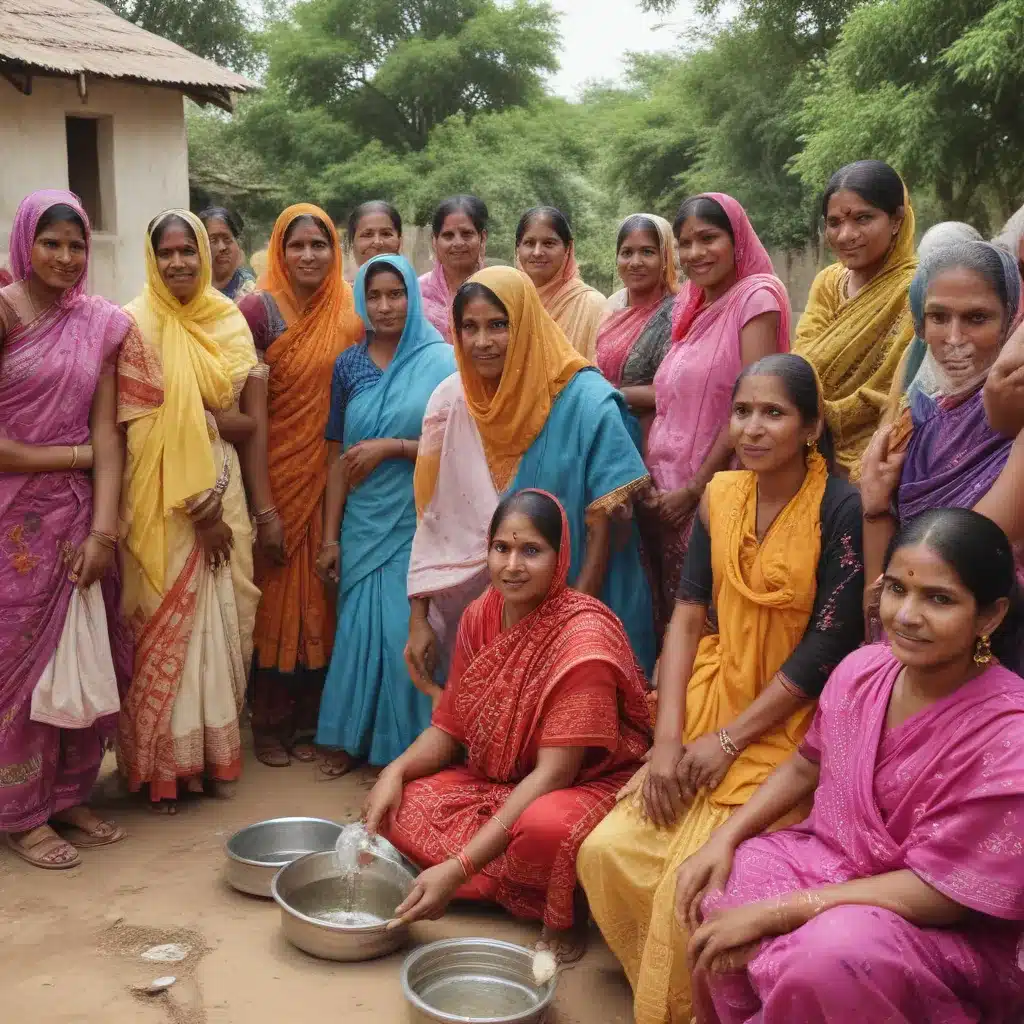
Empowering Women as Agents of Change in Water, Sanitation, and Hygiene
Women play a vital role in the provision and management of household water, sanitation, and hygiene (WASH) services, yet their voices are often marginalized in decision-making processes. In Hyderabad, India, a city grappling with urgent WASH challenges, women-led community groups are emerging as powerful agents of change, driving sustainable solutions from the grassroots level.
Navigating the WASH Crisis in Hyderabad
Hyderabad, the capital of Telangana state, is home to over 10 million people. The city faces a complex web of WASH-related issues, including inadequate access to clean water, poor sanitation infrastructure, and lack of awareness around proper hygiene practices. These problems disproportionately impact women and girls, who bear the brunt of water collection, domestic chores, and caretaking responsibilities.
According to a recent state government report, only 60% of Hyderabad’s households have access to piped water supply, and over 20% lack access to improved sanitation facilities. The situation is even more dire in the city’s low-income neighborhoods and informal settlements, where women and children often queue for hours to fetch water from communal taps or stand in line to use shared, unsanitary toilets.
The impacts of this WASH crisis are far-reaching, contributing to health issues, lost educational and economic opportunities, and heightened risks of gender-based violence. As the IOM Pakistan Crisis Response Plan highlights, climate change is exacerbating water scarcity and sanitation challenges, further straining vulnerable communities.
Grassroots Leadership: Women-Led Community Groups in Action
Against this backdrop of pressing WASH needs, women-led community groups in Hyderabad are emerging as powerful forces for change. Drawing on their intimate knowledge of local challenges and their ability to mobilize community members, these groups are spearheading innovative, community-driven solutions.
One such group is the “Water Warriors of Hyderabad,” a network of women activists who have been tirelessly advocating for equitable access to clean water and improved sanitation facilities. Through sustained dialogue with local authorities, the Water Warriors have secured the installation of new community water taps, the construction of public toilets, and the implementation of hygiene education programs in their neighborhoods.
“We know better than anyone the struggles our families face in accessing clean water and proper sanitation,” says Reshma, a founding member of the Water Warriors. “That’s why we’re determined to be the driving force behind lasting WASH improvements in our communities.”
Similarly, the “Swachh Hyderabad” (Clean Hyderabad) initiative, led by a coalition of women-run non-profit organizations, has been working to address the city’s waste management challenges. The group organizes regular community clean-up drives, partners with waste collectors to improve service delivery, and runs awareness campaigns on the importance of proper waste segregation and disposal.
“Women are the backbone of our communities when it comes to maintaining cleanliness and promoting healthy sanitation practices,” explains Asha, the coordinator of Swachh Hyderabad. “By empowering women to take the lead, we’re able to drive real, sustainable change.”
Amplifying Women’s Voices in WASH Governance
While the efforts of these grassroots groups have already yielded tangible improvements, barriers to women’s meaningful participation in formal WASH decision-making processes remain. As highlighted in the U.S. Strategy to Respond to the Effects of Climate Change on Women, women often face structural, institutional, and cultural obstacles that limit their ability to influence policy and programming.
To address this gap, local civil society organizations, with support from international partners, are working to amplify the voices of women-led community groups in WASH governance. One such initiative is the “Empowering Women in WASH” project, supported by the U.S. government’s Gender Equity and Equality Action (GEEA) Fund.
Through the project, women community leaders receive training on policy advocacy, stakeholder engagement, and project management. They are also connected with local government officials, utility providers, and other key decision-makers to ensure that their perspectives and priorities are integrated into WASH planning and implementation.
“Having a seat at the table is just the first step,” says Fatima, a participant in the Empowering Women in WASH project. “The real change happens when we’re able to shape the agenda and hold duty-bearers accountable to our communities’ needs.”
Fostering Inclusive, Sustainable WASH Solutions
By empowering women-led community groups in Hyderabad, the city is witnessing a transformation in its approach to WASH challenges. These grassroots leaders are not only driving immediate improvements in access to clean water and sanitation but are also laying the foundation for more inclusive, sustainable WASH governance in the long term.
The Joint Action for Water blog has previously highlighted the important role of community engagement in effective WASH programming. The experiences of the Water Warriors, Swachh Hyderabad, and other women-led groups in Hyderabad reinforce this, demonstrating how elevating the voices of marginalized communities can lead to more equitable and responsive WASH services.
As Hyderabad continues to grapple with its WASH crisis, the city’s future lies in the hands of these empowered women, who are proving that community-driven solutions, grounded in local knowledge and gender-responsive approaches, are the key to unlocking lasting change.
Conclusion: A Call to Action
The story of Hyderabad’s women-led community groups serves as a powerful example of how grassroots leadership can transform WASH governance. By amplifying the voices of these change-makers, we can inspire similar efforts in other cities and communities facing urgent WASH challenges.
As the Pakistan Crisis Response Plan highlights, the impacts of climate change and other crises disproportionately affect women and girls. Investing in women’s leadership and participation in WASH decision-making is not only a matter of social justice but also crucial for building resilient, equitable, and sustainable water and sanitation systems.
Join us in championing the work of women-led community groups and advocating for their meaningful inclusion in WASH governance. Together, we can create a future where all people, regardless of gender, have access to the clean water, safe sanitation, and healthy environments they deserve.

